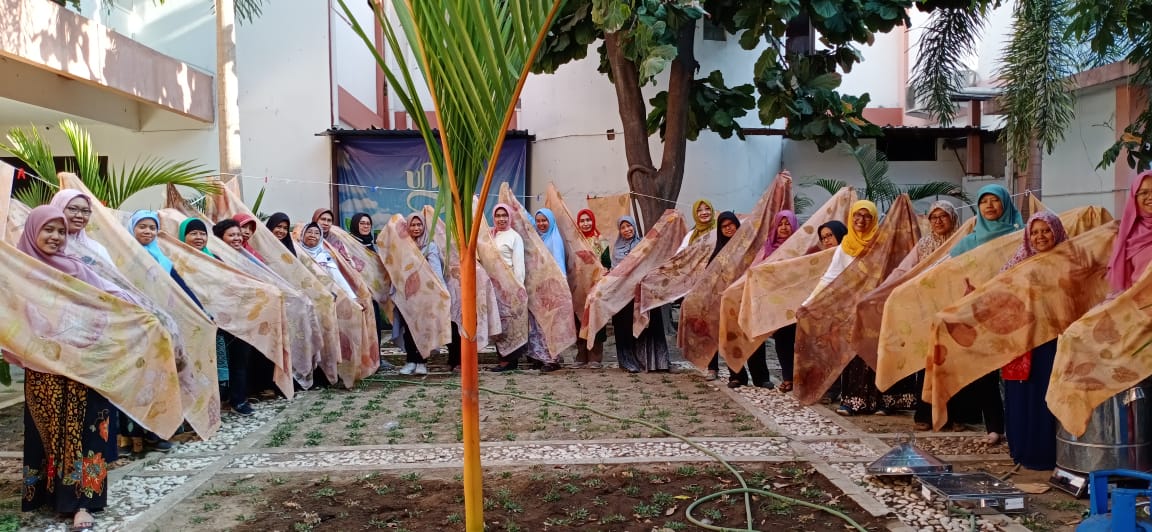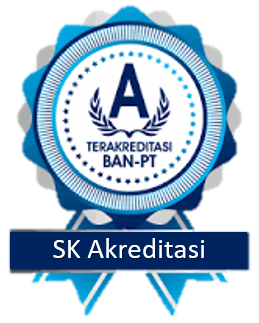You are here
DEVELOPMENT OF ECOPRINT SKILLS AT KBM TO SUPPORT ECOWISATA BUSINESSES

Community Service Team, UNY's Community Partnership Program (PKM) consisting of Dr.Kun Sri Budiasih (Chemistry Study Program), Dr.Tien Aminatun (Biology Study Program), Dr.Denies Priantinah, Ak (Accounting Study Program) organized the development of ecoprint skills in the Group Community Learning (KBM) to support ecotourism efforts in Karangkajen Science Village, Brontokusuman, Kec. Mergangsan Yogyakarta.
This village has its own uniqueness as a science village that is designed to be a tourist icon based on the creativity of the citizens. The development also involved several other KBMs, such as Mata Aksara, Bumi Panggung Bantul Cultural Village and Sanggar Anak Bumi Tani Sleman.
Kun Sri Budiasih explained, PKM aims to develop creative ecoprint fabric manufacturing skills that involve the coloring process with natural dyes, Ecoprint Fabric is a fabric model designed using motifs and direct coloring from natural materials, such as leaves, twigs and flowers. This product is experiencing a popular period and has a high economic price.
Ecoprint is based on the term meaningful print from nature. The ecoprint technique is a process of transferring colors and shapes directly to the media (cloth, paper, leather, etc.). The ecoprint technique is used to decorate the surface of a fabric with a variety of shapes and colors. Chemically, ecoprint is an in situ natural dyeing technique. This is different from coloring which is through the process of taking color first and then applied to the fabric ex situ. The ecoprint product is a combination of the work of coloring techniques and design artworks that are environmentally friendly. This ecoprint technique was developed in India, by Ingrid Diana Flint, in 2001.
"Ecoprint is a creative work of cloth that is not included in batik. Ecoprint has several features, among others, the product is very dependent on the behavior of the natural materials applied and also depends on the material by the fabric designer who is working on the product. Therefore, ecoprint can be considered as a work of art whose results depend very much on the behavior of the dye and the printer and the creativity of the maker. Ecoprint is one of the products that reflects the creative work and environmental love character (ecofriendly), "he continued.
Kun added that the approach chosen in the PKM program was a literacy approach that included scientific literacy, financial literacy, and digital literacy. Science literacy provides insights and skills in human resource management by honing skills, natural resources with appropriate applied science and technology, which is making ecoprint fabrics and natural dyes from local plants. Financial literacy provides in-depth financial management and business startup management. Digital literacy includes the introduction of information sources and simple digital marketing.
In this program, three sub-activities are carried out: Training in ecoprint fabric manufacturing skills (basic and advanced) by Dr. Kun Sri Budiasih, Cultivation and management of ecoprint product support plants by Tien Aminatun, and basic entrepreneurship management training by Denies Priantinah. (witono)
Sistem Informasi
Kontak Kami
Program Studi Biologi
(Gedung Baru FMIPA lt III depan Masjid Mujahidin Karangmalang)
FMIPA Universitas Negeri Yogyakarta
Kampus Karangmalang Yogyakarta 55281
email : biologi@uny.ac.id
Copyright © 2025,

